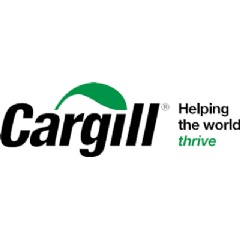Cargill sets goals to make ocean transportation safer, more efficient and sustainable
As one of the world’s largest vessel charterers, Cargill continues its push to reduce emissions and raise industry standards
Cargill has published its first corporate responsibility report specifically for its ocean transportation business. The report, which is written in line with the Global Reporting Initiative, provides an update on progress for 2017. The company outlines its plans and activities to lead dry bulk shipping, one of the world’s oldest and most traditional industries, into a new era by making shipping safer, more efficient and sustainable.
Together with its stakeholders, Cargill completed a comprehensive materiality assessment for its operations in mid-2017. Using this assessment tool as a basis, the business set actions and targets to improve its operations in the areas of climate change and health; safety and well-being; ocean health and biodiversity; and inclusion and diversity.
“Cargill is taking a holistic approach to sustainable development and to our obligations as a responsible global citizen,” said Jan Dieleman, president of Cargill’s ocean transportation business.
Cargill reports some improvements across a number of performance measures, notably within its fleet composition and vessel efficiency. In 2017, Cargill’s ocean transportation business reduced its CO2 emissions by 5.7 percent* and committed to achieving a 15 percent reduction by 2020.
“We are relatively pleased with our fleet performance this year. We know vessel efficiency can vary considerably due to a host of external factors but the whole team at Cargill is committed to achieving a significant improvement in coming years,” said Dieleman.
The aspirations outlined by the ocean transportation business follow Cargill’s earlier announcement, which stated their desire to cut gross greenhouse gas emissions by 10 percent by 2020 across its global operations.
Dieleman also recognized the importance of the strategic partnerships which Cargill entered into in the latter part of 2017, “Sustainable shipping can only become a reality if the entire industry pulls in the same direction. The hard work certainly lies ahead of us and we will embrace it.”
------
1. Cargill’s CO2 reduction of 5.7 percent is on a cargo-ton-mile basis and applies to its time-chartered fleet.
2. Cargill sets new goal to address climate change.
https://www.cargill.com/story/cargill-sets-new-goal-to-address-climate-change
3. Cargill signs four new strategic partnerships to advance sustainability in the ocean shipping industry.
https://www.cargill.com/2018/cargill-signs-four-new-strategic-partnerships
About Cargill
Cargill’s 155,000 employees across 70 countries work relentlessly to achieve our purpose of nourishing the world in a safe, responsible and sustainable way. Every day, we connect farmers with markets, customers with ingredients, and people and animals with the food they need to thrive.
We combine 153 years of experience with new technologies and insights to serve as a trusted partner for food, agriculture, financial and industrial customers in more than 125 countries. Side-by-side, we are building a stronger, sustainable future for agriculture.
About Cargill’s Ocean Transportation OperationsCargill is a leader in global freight trading and bulk vessel operations, annually chartering over 650 dry bulk and tanker vessels on the world’s seas. Cargill’s ocean transportation business is a freight-trading business which provides bulk shipping services to customers across the globe. Since 1956, Cargill has combined first-class operations with expert trading in both physical and financial freight markets.
In the global shipping industry, Cargill supports and is an active participant in the Carbon War Room, the Trident Alliance, the Seamen’s Church Institute and the Sailor’s Society. Cargill was one of the first charterers to publicly encourage the International Maritime Organization (IMO) to ensure effective and robust enforcement of the 0.5 percent Global Sulphur Cap on the high seas. The company has set high-standards for operating a safe and efficient ocean fleet and is a partial owner of RightShip, one of the world’s leading ship vetting companies.
( Press Release Image: https://photos.webwire.com/prmedia/6/225578/225578-1.png )
WebWireID225578
This news content was configured by WebWire editorial staff. Linking is permitted.
News Release Distribution and Press Release Distribution Services Provided by WebWire.
